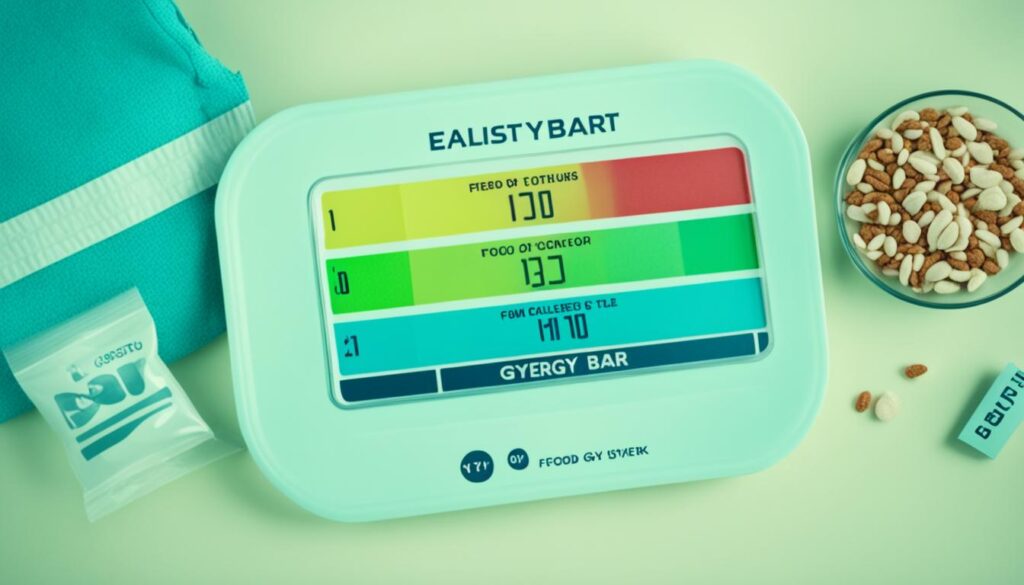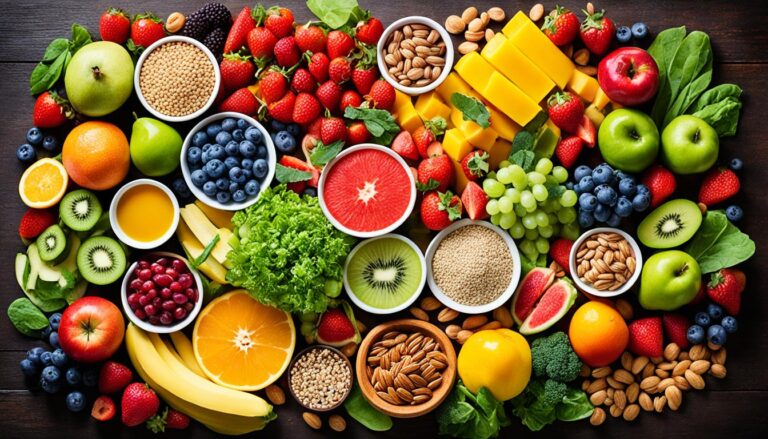Are you struggling to see progress in your fitness journey despite putting in the effort? You might be surprised to learn that the answer could lie in your diet.
We often hear that eating less is the key to achieving our fitness goals, but what if I told you that under eating could actually be hindering your progress?
Many people mistakenly believe that the less they eat, the more weight they will lose or the faster they will reach their desired physique. However, under eating can have detrimental effects on our bodies leading to signs of malnourishment and undernutrition that can sabotage our fitness goals.
So, how can you tell if you’re under eating for your fitness goals? What are the signs that indicate you might not be fueling your body adequately?
In this article, we will explore the five warning signs that suggest you’re not eating enough to achieve your fitness goals.
We’ll delve into the impact of under-eating on energy levels, sleep patterns, injuries and recovery, mood and irritability, as well as menstrual cycles. By understanding these signs, you’ll be better equipped to reassess your diet and make the necessary changes to support your fitness journey.
Key Takeaways:
- Under-eating can hinder your fitness progress despite your efforts.
- Signs of under-eating include constant fatigue, disrupted sleep patterns, slow recovery from workouts, mood swings, and irregular menstrual cycles.
- Proper nutrition is essential for energy, injury prevention hormonal balance, and overall well-being.
- Reassessing your diet and making necessary changes can help you achieve your fitness goals.
- Consulting with a nutritionist or dietitian can provide personalized guidance for your specific needs.
Introduction The Paradox of Eating Less and Seeing Less Progress
When it comes to fitness goals, there is a common misconception that eating less will lead to more progress. However this paradoxical belief often stands in stark contrast to reality. The truth is, under-eating can actually hinder progress and impede the achievement of desired fitness outcomes.
Despite the overwhelming evidence supporting the importance of proper nutrition in reaching fitness goals, many health conscious individuals still fall into the trap of under eating. They restrict their caloric intake in an effort to shed pounds or achieve a certain physique, only to find themselves stuck in a frustrating cycle of limited progress.
So why does this paradox persist? It stems from a combination of factors, including societal pressures, misinformation, and the desire for quick results. People often equate eating less with weight loss and believe that the more they restrict their food intake, the faster they will see the desired changes in their bodies.
However, this approach fails to consider the complex relationship between nutrition, metabolism, and overall health. In reality, adequate fueling through proper nutrition is essential for optimal athletic performance and progress towards fitness goals.
In the following sections, we will explore the five warning signs that indicate an individual is not eating enough to achieve their fitness goals. By understanding these signs, you can reassess your own eating habits and make the necessary adjustments to fuel your body for success.
5 Warning Signs That You’re Not Eating Enough to Achieve Your Fitness Goals
In the pursuit of fitness goals, proper nutrition plays a crucial role. However many individuals unknowingly sabotage their progress by under-eating. Here are five warning signs that indicate you may not be consuming enough to support your fitness aspirations.
Constant Fatigue and Declining Energy Levels
Feeling tired and lacking energy on a regular basis can be a clear indicator of under eating. When your body doesn’t receive enough fuel, it struggles to maintain optimal energy levels. This can negatively impact your performance during workouts and hinder your overall progress.
Disruptions in Sleep Patterns
Under-eating can disrupt your sleep patterns, leading to difficulties falling asleep or staying asleep throughout the night. Poor sleep quality can affect your ability to recover from workouts and negatively impact your mood and cognitive function.
Injuries and Slow Recovery from Workouts
If you find yourself frequently getting injured or experiencing prolonged recovery periods after workouts, it may be a sign that your body is not receiving enough nutrients to support proper healing and repair. Under-eating can compromise your body’s ability to recover and build muscle, making it difficult to achieve your fitness goals.
Mood Swings and Irritability
Under-eating can have a significant impact on your mood and emotional well-being. It can lead to mood swings irritability, and difficulty concentrating. Proper nutrition is essential for maintaining stable blood sugar levels and supporting overall mental health.
Irregularities or Changes in Menstrual Cycles
For women, under-eating can disrupt the normal hormonal balance, leading to irregular menstrual cycles or even the absence of periods. Hormonal imbalances due to inadequate nutrition can have long-term implications for reproductive health.

Recognizing these warning signs is crucial for understanding whether you’re not eating enough to achieve your fitness goals. In the next sections we will explore the specific impacts of under eating in more detail, providing insights into how it affects energy muscle recovery, performance, emotional well being, and hormonal balance.
Combatting Chronic Fatigue How Inadequate Nutrition Impacts Energy
Chronic fatigue is a common symptom experienced by individuals with inadequate nutrition. When you don’t consume enough nutrients to meet your body’s energy needs, it can have a profound impact on your overall vitality and well-being.
Under-eating deprives your body of the essential fuel it needs to function optimally. This can lead to a decrease in energy levels making it challenging to perform daily tasks and engage in physical activities. The lack of adequate nutrition can disrupt the intricate physiological processes that contribute to sustained energy production.

Proper nutrition plays a crucial role in providing the necessary nutrients required for the production of energy in your body. When you consistently under-eat, your body’s energy reserves become depleted, resulting in chronic fatigue.
To combat chronic fatigue caused by inadequate nutrition, it is essential to prioritize a balanced and nourishing diet that supplies your body with the appropriate amounts of macronutrients, vitamins, and minerals. Here are some tips and strategies to help improve your energy levels:
- Ensure you consume enough calories to meet your daily energy needs.
- Incorporate a variety of nutrient-dense foods into your diet, including lean proteins, whole grains, fruits, and vegetables.
- Stay hydrated by drinking an adequate amount of water throughout the day.
- Avoid skipping meals and aim for regular, balanced meals and snacks to maintain consistent energy levels.
- Listen to your body’s hunger and fullness cues to ensure you are fueling yourself appropriately.
- Consider consulting with a registered dietitian or nutritionist to create a personalized meal plan that supports your energy requirements and overall well-being.
By prioritizing adequate nutrition and making conscious food choices, you can combat chronic fatigue and improve your energy levels, allowing you to lead a more vibrant and fulfilling life.
The Impact of Under Eating on Muscle Recovery and Growth
When it comes to achieving optimal muscle recovery and growth, proper nutrition plays a crucial role. Under eating, or not consuming enough calories and nutrients, can have a significant impact on your fitness goals. Let’s dive deeper into the consequences of under eating and explore the essential nutrients your body needs for optimal recovery.
Recognizing the Need for Protein
Protein is a vital component for muscle recovery and growth. It provides the necessary building blocks, amino acids, that repair and rebuild muscle tissues after strenuous workouts. However, under-eating can lead to inadequate protein intake, hindering your body’s ability to recover efficiently.
A protein deficient diet not only impairs muscle recovery but also compromises muscle growth. Without sufficient protein, your body may enter a catabolic state, breaking down muscle tissue to meet its energy needs. This can result in muscle loss instead of the desired growth and strength gains.
Include high-quality sources of protein in your diet, such as lean meats, poultry, fish, eggs, dairy products, legumes, and plant-based protein sources like tofu and tempeh. Aim for the recommended daily intake of protein based on your activity level and fitness goals.
Necessary Nutrients for Optimal Recovery
In addition to protein, other nutrients are crucial for optimal muscle recovery. Here are some key nutrients to include in your diet:
- Carbohydrates: Carbs provide energy for your workouts and replenish glycogen stores in your muscles. They also help facilitate protein synthesis for muscle recovery. Include complex carbohydrates like whole grains, fruits, and vegetables in your meals.
- Fats: Healthy fats play a role in hormone production and assist in nutrient absorption. Incorporate sources of omega-3 fatty acids, such as fatty fish, nuts, and seeds, into your diet.
- Vitamins and Minerals: Ensure you’re getting an adequate intake of vitamins and minerals, including vitamin D, calcium, magnesium, and iron. These micronutrients support muscle function, bone health, and overall recovery.
- Hydration: Staying properly hydrated is essential for muscle recovery. Water helps transport nutrients to your muscles and removes waste products. Drink enough water throughout the day and hydrate adequately before, during, and after workouts.
Proper nutrition is the key to unlocking your body’s full potential for muscle recovery and growth. Don’t underestimate the importance of fueling your body with the necessary nutrients it needs to thrive.
To visualize the impact of under-eating on muscle recovery and growth, take a look at the table below:
| Nutrient | Role in Muscle Recovery and Growth |
|---|---|
| Protein | Provides essential amino acids for muscle repair and growth |
| Carbohydrates | Supply energy for workouts and replenish glycogen stores |
| Fats | Aid in hormone production and nutrient absorption |
| Vitamins and Minerals | Support muscle function, bone health, and overall recovery |
| Hydration | Facilitates nutrient transport and waste removal |
As you can see, under-eating can have a detrimental effect on muscle recovery and growth. It’s crucial to prioritize a well-rounded diet that provides adequate protein and other necessary nutrients to optimize your body’s recovery process.
Understanding the Nutrition Performance Connection
Proper nutrition plays a crucial role in enhancing athletic performance. The fuel we provide our bodies directly impacts our ability to reach peak athletic ability.
However, many individuals underestimate the importance of fueling their bodies adequately, which can ultimately hinder their performance goals. In this section, we will explore the connection between nutrition and performance shedding light on the key factors that can hold you back from reaching your fitness peak.
Fueling for Peak Athletic Ability
Fueling your body with the right nutrients is essential for achieving peak athletic ability. Just like a car needs high quality fuel to perform optimally, your body requires the right balance of carbohydrates, proteins, and fats to operate at its best.
These macronutrients provide the energy and nutrients needed to fuel your muscles, maintain stamina, and facilitate recovery. By prioritizing a well-balanced diet that meets your unique nutritional needs, you can optimize your performance and enhance your athletic ability.
To fuel for peak athletic performance, focus on consuming nutrient-dense foods such as lean proteins, whole grains, fruits, vegetables, and healthy fats. Hydration is also vital, so be sure to drink water and replenish electrolytes during intense workouts. By giving your body the fuel it needs, you can unlock your full potential and perform at your best.
Why Your Diet Might Be Holding You Back
While proper fueling is crucial, under-eating can have a detrimental impact on your athletic performance. Restrictive diets and inadequate calorie intake can deprive your body of the necessary nutrients and energy it needs to perform optimally. This can lead to fatigue, decreased strength and stamina, impaired recovery, and increased risk of injury.
Additionally, under-eating can result in nutrient deficiencies, which can negatively affect muscle growth and hinder overall athletic performance. Without adequate nutrition, your body may struggle to repair and build new muscle tissue, impairing strength gains and athletic progress.
It’s important to find the right balance when it comes to your diet. Working with a registered dietitian or sports nutritionist can help ensure you are fueling your body properly based on your individual needs and goals.
They can provide personalized guidance to optimize your nutrition for peak athletic performance and help you break through any barriers that may be holding you back.

Emotional Signals How Hunger Affects Mood and Well being
Hunger is not just a physical sensation it also has a profound impact on our emotions and overall well-being. When our bodies are deprived of the nourishment they need, emotional signals begin to emerge, signaling that something is off balance.
These emotional signals can manifest in various ways, affecting our mood, cognition, and overall mental state. Feeling irritable, anxious, or easily overwhelmed may be a result of hunger. Additionally, hunger can lead to difficulty concentrating, making decisions, or coping with daily stressors.
So why does hunger have such a powerful effect on our emotions?
It’s a combination of psychological and physiological factors. When we’re hungry, our bodies release stress hormones like cortisol, which can contribute to feelings of agitation and tension. At the same time, hunger also alters the brain’s neurotransmitter activity, affecting our mood-regulating chemicals like serotonin and dopamine.
Properly managing hunger is essential for maintaining emotional well-being. Here are a few tips to help:
- Listen to your body: Pay attention to your hunger cues and respond appropriately. Eat when you’re hungry and stop when you’re satisfied. Trusting your body’s signals is key to maintaining a healthy relationship with food.
- Eat balanced meals: Ensure that your meals consist of a variety of nutrients, including protein, healthy fats, and fiber. These nutrients help regulate blood sugar levels and keep you feeling satisfied for longer.
- Snack mindfully: If you find yourself feeling hungry between meals, choose snacks that offer nutritional value and help stabilize blood sugar levels. Opt for foods like fruits, vegetables, nuts, or yogurt.
- Stay hydrated: Sometimes, thirst can masquerade as hunger. Make sure to drink enough water throughout the day to stay properly hydrated.
- Manage stress: Stress can exacerbate feelings of hunger. Incorporate stress-relief techniques into your daily routine, such as exercise, meditation, or spending time in nature.
By understanding the emotional signals of hunger and implementing strategies to manage it, you can support your mood and overall well-being. Remember, nourishing your body adequately is essential for achieving your fitness goals and living a balanced and fulfilling life.

Hormonal Red Flags and Fertility Concerns from Under Eating
Under-eating can have significant impacts on hormonal balance and fertility. It is important to pay attention to these hormonal red flags and fertility concerns to ensure long-term health and well-being.
Indicators of Hormonal Imbalances Due to Poor Diet
A poor diet and under-eating can disrupt the delicate balance of hormones in the body. Some indicators of hormonal imbalances due to poor diet include:
- Irregular menstrual cycles: Women may experience changes in the length or regularity of their menstrual cycles. This can be a sign of hormonal disruption caused by inadequate nutrition.
- Low libido: Hormonal imbalances can lead to a decrease in sex drive and overall reproductive health.
- Mood swings: Hormonal fluctuations due to under-eating can contribute to mood swings, irritability, and anxiety.
- Changes in weight and body composition: Hormonal imbalances can make it difficult to maintain a healthy weight, leading to weight loss or weight gain.
- Thinning hair and brittle nails: Inadequate nutrition can impact the health and appearance of hair and nails, causing thinning and brittleness.
It is important to recognize these indicators as potential signs of hormonal imbalances resulting from under-eating. Consulting with a healthcare professional or registered dietitian can help address these concerns and restore hormonal balance through proper nutrition.
Extending Beyond Weight Loss: Considering Long-Term Health
While weight loss may be a primary goal for some individuals, it is crucial to consider the long-term health implications of under-eating. Poor nutrition can have far-reaching effects on various aspects of health, including hormonal balance and fertility.
Long-term under-eating can disrupt the production of reproductive hormones, such as estrogen and progesterone, which are essential for maintaining fertility. It can also lead to nutrient deficiencies that can negatively impact reproductive health.
Additionally, hormonal imbalances caused by chronic under-eating can have broader implications for overall well-being, including mood disturbances, bone health issues, and metabolic dysregulation.
It is essential to prioritize a well-balanced and nourishing diet that supports hormonal balance, fertility, and long-term health. Seeking guidance from a healthcare professional or registered dietitian can help ensure an individual is meeting their nutritional needs and addressing any potential hormonal imbalances resulting from under-eating.

Conclusion Reassessing Your Diet for Successful Fitness Outcomes
As we come to the end of this article, it’s clear that under-eating can have detrimental effects on your fitness goals. From constant fatigue to disrupted sleep patterns injuries mood swings, and irregular menstrual cycles these warning signs should not be ignored. It’s crucial to reassess your diet and make necessary changes to achieve successful fitness outcomes.
To combat chronic fatigue, prioritize adequate nutrition. Proper fueling is essential for optimal energy levels and peak athletic performance. Make sure you’re consuming enough protein and other necessary nutrients to support muscle recovery and growth. Remember, a well balanced diet goes beyond just losing weight it impacts your long-term health and overall well-being.
So, take a moment to reflect on your current eating habits. Are you giving your body the nourishment it needs to thrive? Are you experiencing any of the warning signs discussed in this article? If so, it’s time to make a change.
Consult a registered dietitian or nutritionist to create a personalized eating plan that aligns with your fitness goals. Remember, your journey to success starts with reassessing your diet.





